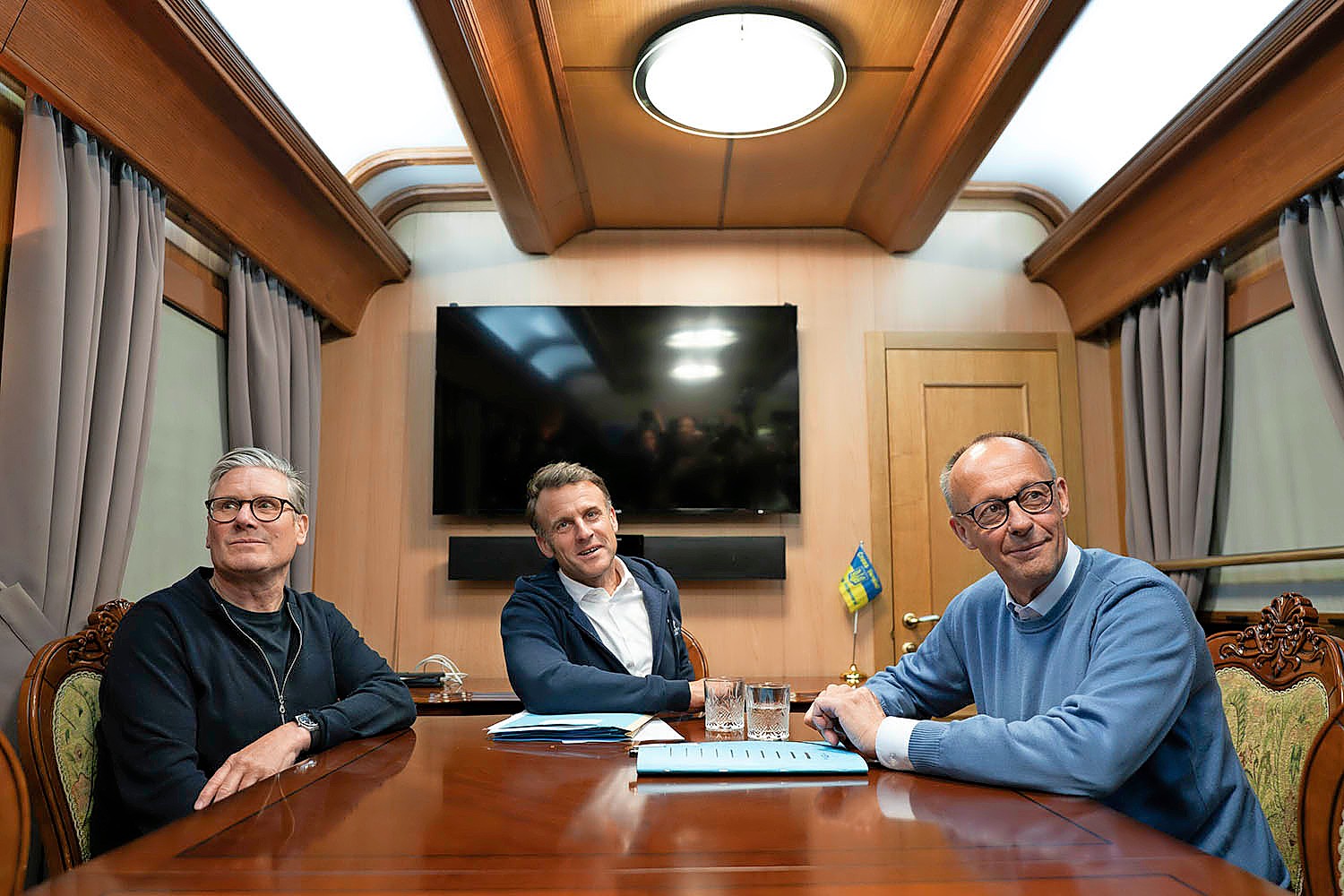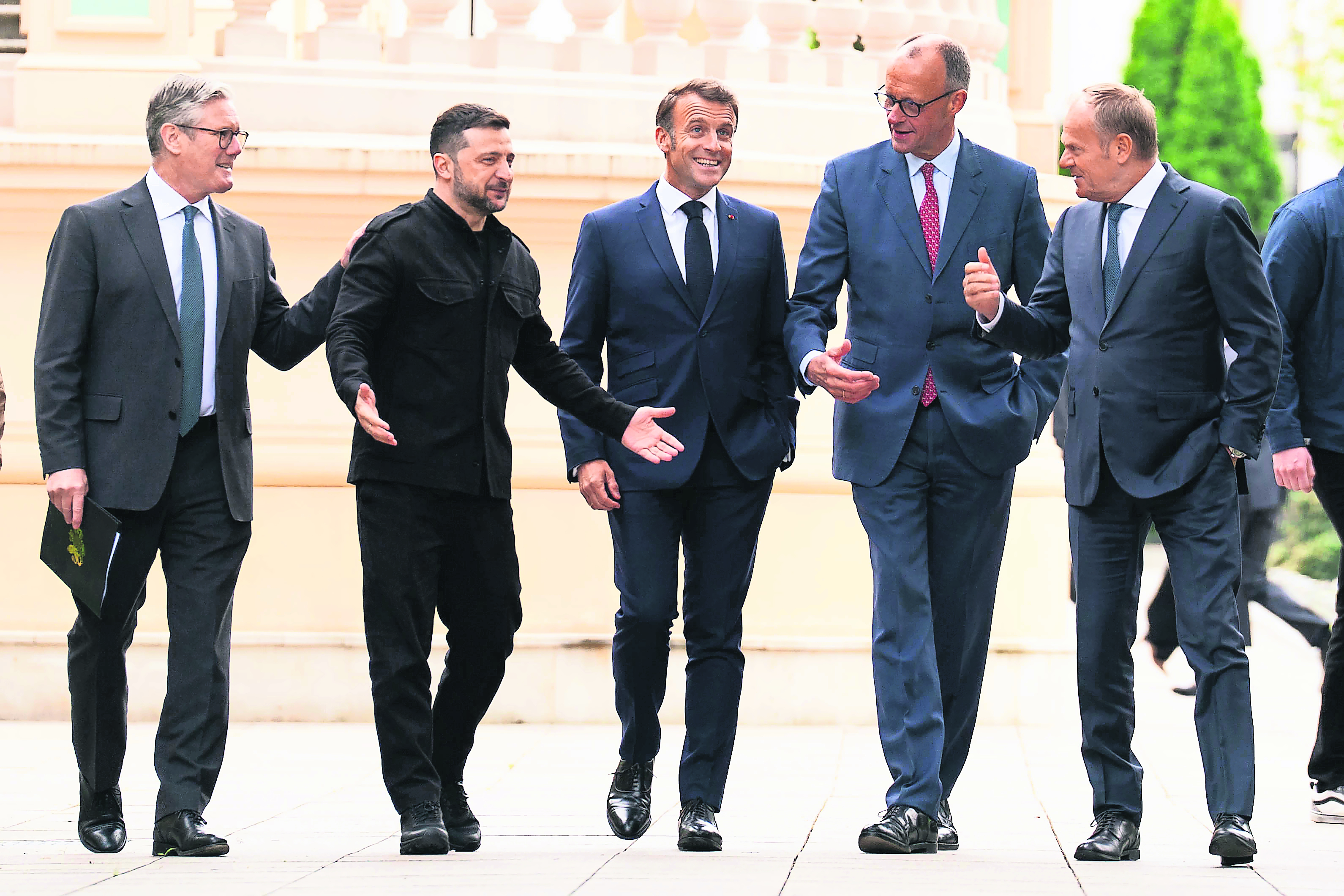Keir Starmer is pivoting towards Europe after securing trade deals with the US and India, amid signs of a realignment that is allowing the UK to rebuild a closer relationship with the EU after Brexit.
The government has concluded the EU now offers a “more stable partnership” than the US under Donald Trump’s presidency, senior figures say. A landmark UK-EU summit in London is expected to agree a wide-ranging defence and security partnership and set out other areas of potential collaboration on trade, energy and youth mobility.
Senior Whitehall sources say the meeting on 19 May will be the “start of the process” rather than the end point for the deeper relationship. The outlines of a deal between the UK and the EU are becoming clear ahead of the summit. There is expected to be a formal agreement signed on security and defence, and other areas for future cooperation will be set out with a roadmap for negotiations.
The defence agreement will see the UK paying into a joint EU procurement fund that British manufacturers will then be able to pitch for. The French had been trying to link access to the fund to an agreement on fishing rights, but one Whitehall source said “the fish block has gone”.
Nick Thomas-Symonds, the Cabinet Office minister in charge of negotiations, has suggested Britain would be prepared to allow EU fishers to continue to enjoy current access to UK waters when a five-year agreement expires in 2026 as part of a wider deal to secure easier access for British fishers to sell their catch on the continent.
The UK has made clear it will not return to free movement or rejoin the customs union or single market, but Starmer has indicated that he will support a controlled youth mobility scheme. A visa for touring musicians is also likely to be agreed in principle, with further discussions to work out the detail.
There is expected to be deeper cooperation on the EU carbon border adjustment mechanism, a way of calculating taxes on high-polluting industries. The UK is also preparing to align with the EU on food standards in order to facilitate agricultural trade. The government has accepted that there would be a role for the European Court of Justice in resolving any disputes. The UK is also pushing for the mutual recognition of professional qualifications and closer working on law enforcement.
The prime minister has told colleagues that he wants the UK to be a key player in a broader, looser alliance of liberal democratic European nations. The phrase being used in Downing Street is “EU plus minus” – meaning the EU with the addition of countries including the UK, Norway, Switzerland, Ukraine and Turkey, but without Hungary and Slovakia.
The concept, devised by Alexander Stubb, president of Finland, builds on the “coalition of the willing” created to support Ukraine and paves the way for wider cooperation based on values rather than institutions. “There is a distinction between Europe and the EU,” one minister said.
The prime minister has said the UK has “ambitious” plans to secure a closer trading partnership with the EU: “Let’s look forward, not back. Let’s recognise we’re living in a different world.”
Newsletters
Choose the newsletters you want to receive
View more
For information about how The Observer protects your data, read our Privacy Policy

Yesterday Starmer joined the French president Emmanuel Macron, the German chancellor Friedrich Merz and the Polish prime minister Donald Tusk alongside Volodymyr Zelenskyy to underline their commitment to Ukraine.Hungary and Slovakia have consistently taken a more pro-Russian stance. On Friday, the Slovak prime minister, Robert Fico, shook hands with the Russian president, Vladimir Putin, in Moscow ahead of Russia’s annual Victory Day celebrations marking the Soviet Union’s defeat of Nazi Germany in the second world war. Ukraine expelled two Hungarian diplomats who it said were spies being run by military intelligence.
In a further sign of emerging realignment in Europe, David Lammy, the foreign secretary, will tomorrow host a meeting in London of the “Weimar Plus” diplomatic alliance of EU countries including France, Germany and Poland as well as the UK.
Some European diplomats have been concerned that the UK’s appetite for a deeper relationship would be dampened by the success of Nigel Farage’s Reform party at the recent local elections, but Whitehall sources say the economic and security imperatives are overwhelming. “Relations are at a really good point,” one said. “The security partnership is emblematic.”
One senior Labour figure said there was pressure for the US trade deal to be reached before the EU summit in London. “They wanted to get that done first so Starmer could do the pivot to Europe,” the source said. “What’s changed is not some ideological realignment towards Europe, it’s a hard-headed, pragmatic judgement about who is a reliable partner. The opportunities for economic growth are so much greater than anything we can get from America and it’s a more stable partnership than the one Trump is offering.”
Photograph by Stefan Rousseau/PA


